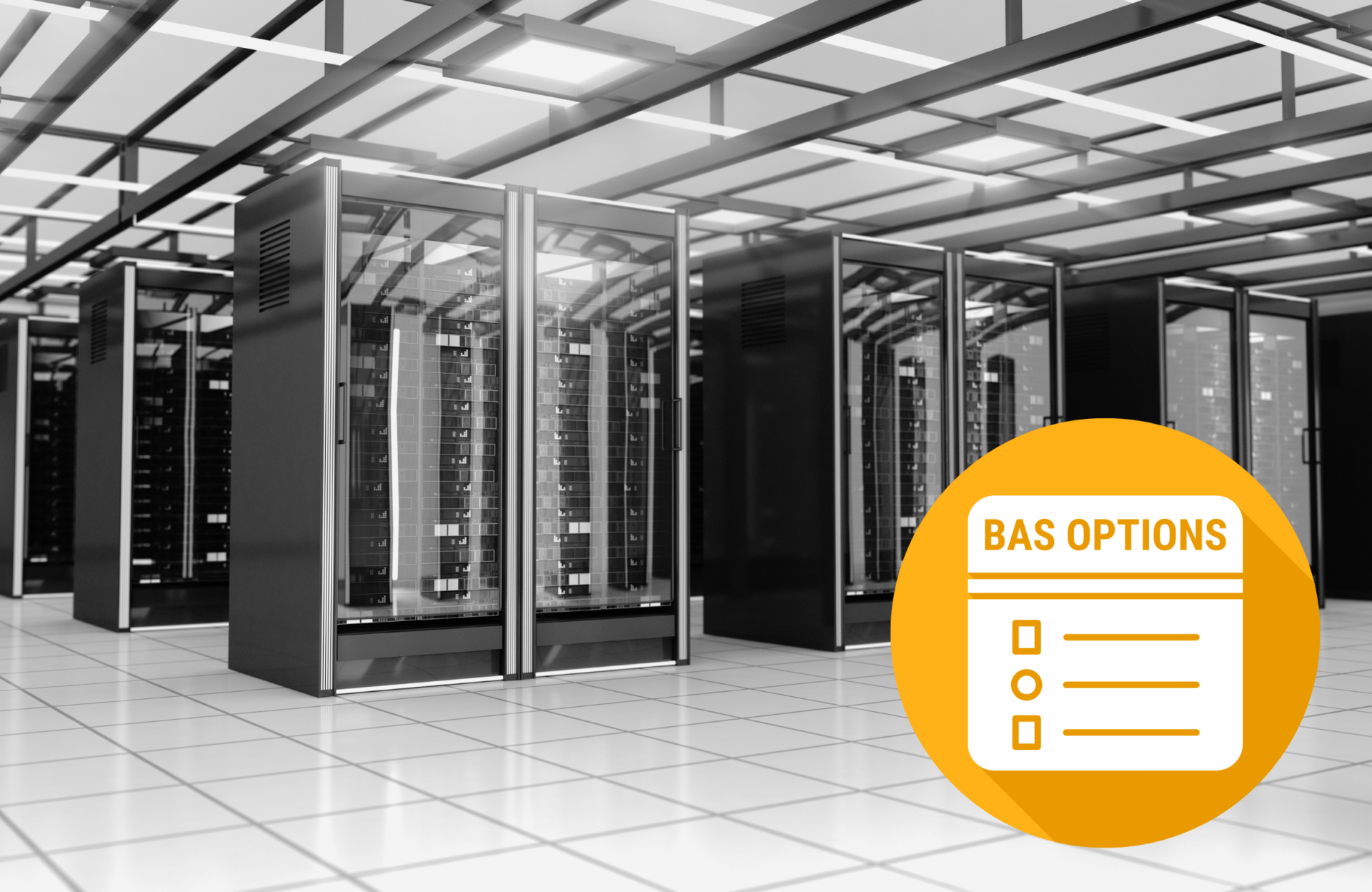Even before the popularity of artificial intelligence (AI), data centers were known for being energy-intensive, consuming 10 to 50 times more energy per square foot than a standard commercial building, according to the U.S. Dept. of Energy.
To meet the demand for AI services, data centers are installing specialized high-performance servers that consume many kilowatts of electricity. These servers also generate a lot of heat requiring advanced liquid cooling that offers superior heat dissipation.
The selection of a building automation system for data centers must address unique operational requirements for power reliability and efficiency, reliable cooling and leak detection. In addition, these energy management systems must also support cyber security best practices and the ability to expand to support growth.
How Building Management Systems Help Manage Data Center Energy Consumption
Data centers’ enormous power consumption makes energy efficiency a paramount concern. A well-designed building automation system sets and enforces energy efficiency measures that reduce energy consumption and save money on operating costs.
For example, the building control system can be used to optimize HVAC systems by adjusting cooling and airflow in response to real-time data. This ensures the environment stays within required parameters without unnecessary energy usage. The lighting control system further contributes to energy management by regulating illumination based on occupancy and time of day.
Power monitoring systems provide detailed insights into the building energy usage patterns, enabling informed decisions about resource allocation and efficiency improvements. Together, these features allow a data center to operate more sustainably, save on energy costs and align with broader environmental goals.
Key Factors to Consider When Choosing a Building Management System for Data Centers
Selecting the right BAS builds on these energy savings capabilities with features and functionality that meet the mission-critical needs of the data center.
Real-time monitoring can generate thousands of alarms – overwhelming technicians and disguising real problems in a slew of minor alarms. Using robust alarm management systems, such as Albireo’s CALM alarm management, data center operators can isolate the most critical alerts ensuring that these rise above the noise for immediate action.
The rest of the alarm data can be analyzed for trends by advanced analytics and reporting features that allow facility managers to make data-driven decisions that enhance performance and efficiency.
Cybersecurity is a vital aspect of any building automation system in a data center, given the sensitive nature of the data housed within these facilities. Some of the most common cybersecurity best practices include isolating the BAS network from the corporate network to deny hackers a backdoor into IT systems. Ensuring limited access to the BAS via strict access controls is another important security measure. Creating an inventory of assets enables continuous and active monitoring of potential vulnerabilities. Developing an incident response plan maps how technicians and systems can take action during a cyberattack, ensuring the fastest possible response to a cyber breach.
Data centers will continue to grow and evolve as cloud and AI services grow more popular. This constant change makes it essential that the BAS is future-proof to enable the system to meet data center growth. Two important characteristics of future-proofing a data center BAS are interoperability with new systems and the ability to integrate future technologies.
Reliability is another key consideration as system failures can lead to costly downtime and operational disruptions.
What to Look For in a Data Center BAS Vendor
The selection of a BAS install-and-management vendor is as critical as choosing the system itself. Partnering with a vendor that adopts a technology-agnostic approach ensures the focus remains on delivering the best solution for the specific needs of the data center, free from the limitations of proprietary technologies.
The vendor’s expertise in project execution is crucial, as successful implementation requires careful planning, coordination, and technical knowledge.
Comprehensive services and a skilled team are additional hallmarks of a reliable vendor. They should offer end-to-end support, including system design, installation, training, and ongoing maintenance, ensuring the building automation system performs optimally throughout its lifecycle.
When evaluating prospective vendors, consider asking about their experience with similar projects, their approach to integrating new technologies, and their strategies for ensuring system security and compliance.
These inquiries provide valuable insights into the vendor’s capabilities and compatibility with the data center’s goals.
Properly configured a data center BAS can help to deliver advanced cloud and AI services and at the same time steward valuable energy and water resources.






